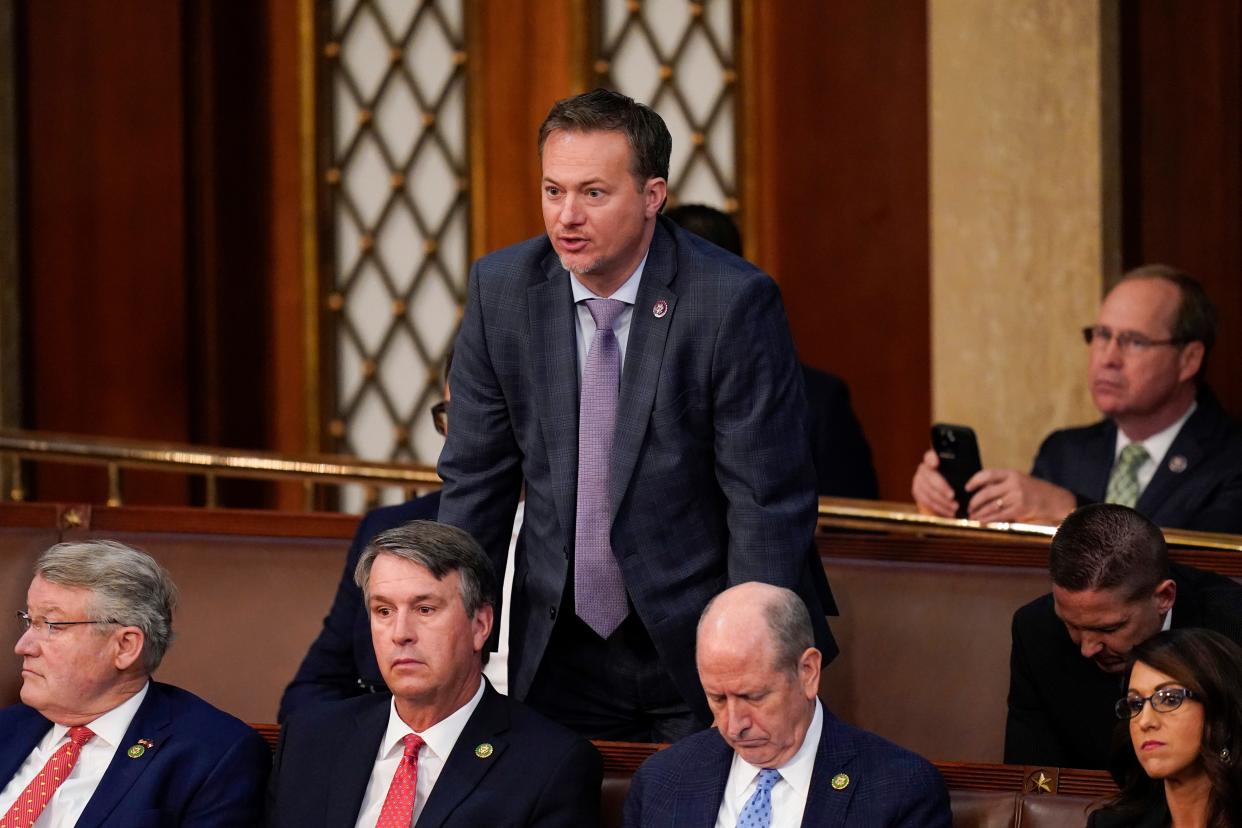Opinion: Nobody likes taxes, Rep. Cloud, but they're still necessary

"Washington is for itself, and that needs to change. Bureaucracy, waste, fraud, abuse, and regulatory burdens plague our government and make it inefficient to operate. It is a goal of mine to reduce the size and scope of government and make it more accountable to the citizens" -U.S. Rep. Michael Cloud
The GOP complaining about taxes is nothing new. President Ronald Reagan once said, “We don’t have a trillion-dollar debt because we haven’t taxed enough; we have a trillion-dollar debt because we spend too much.”
Neither is the GOP position that the U.S. both spends too much, as Cloud states. And taxes too much, as Cloud also stated when he opposed the addition of IRS agents to audit the rich (the IRA legislation). It makes for good politics given the Republican voter base.
However, as a fiscal conservative with an extensive background in private and public sector budgeting, I can tell you that Cloud (and Reagan) are only half right. And that’s the problem with all the other Trumpist MAGA politicians as well. To make progress, we must look at both sides of the ledger -- taxes and spending.
When I evaluated expansion budgets for a healthcare corporation, I looked at both costs and benefits. If costs exceeded known benefits, budgets were reduced. If proven benefits clearly exceeded costs, budget increase requests were approved. That is the correct methodology for local, state and federal government to utilize in decision making. However, due to the role of politics in both parties, there is a lot of pork in spending versus cost/benefit analysis.
I was chairman of a rural county commission. Three of us were GOP and the other two Democrats. I asked the county manager to come up with a road improvement plan based on need (utilization, road condition). A civil engineer, he did a great job in deriving a plan. Which was subsequently rejected by a bipartisan coalition of commissioners, objective need be damned. Decisions continued to be made according to backroom deals between commissioners versus objective criteria.
I was also the Chair of the Tax Committee of the Association for County Commissioners of Georgia. I found that many conscientious elected officials were struggling with the same problem. Frankly, it is up to voters to recognize pork when they see it. And vote against those at the trough.
For example, on the national level our military spending goes up year after year, regardless of the party controlling Congress and the White House. When is enough finally enough? Trump hypocritically moaned about government spending and the “swamp.” However, during his term spending went from $647 billion in 2016 to $734 billion. In 2019 alone, military spending rose 8% in just one year (Cloud did not object). All the while, we were withdrawing from our military obligations in the Middle East. Was the cost worth the benefit? I have the same reaction to Biden’s student debt forgiveness program. There is not enough emphasis on those in need versus the wealthy.
Taxes are the other part of the equation. Trump and Cloud continue to advocate for less tax collection, especially from the wealthy.
During the pandemic, when middle class America was hurting, the rich got much richer. Per one 2021 report “The 400 richest Americans added $4.5 trillion to their wealth last year, a 40% rise.” Tax laws and enforcement are major reasons underlying this untenable situation.
Per the Congressional Budget Office, the bottom half of American only have 2% of total U.S. wealth while the top 10% possess over two-thirds of our national wealth. For example, families in the top 10% averaged $6.4 million in assets. Families in the bottom 25% had average assets of minus $11,000.
But this is nothing new. Over the last few decades there has been a growing income imbalance in this nation. The CBO indicates that “The share of total wealth held by families in the top 10 percent of the distribution increased from 63 percent in 1989 to 72 percent in 2019, and the share of total wealth held by families in the top 1 percent of the distribution increased from 27 percent to 34 percent.”
This increase in assets of the rich is the underlying factor in the lock-step GOP opposition, including Cloud, to adding IRS agents and staff. The GOP and Cloud are purposefully misleading taxpayers about who these agents will be auditing, the rich. Per the White House, “House Republicans are making clear that their top economic priority is to allow the rich and multi-billion-dollar corporations to skip out on their taxes...”.
In summary, as opposed to what Cloud would have you believe, the U.S. government is in debt because a.) the wealthy pay little in taxes and b.) we do not utilize cost-benefit analysis as the criteria for funding programs. The only way to correct this situation is through the ballot box.
Jack Bernard is a retired corporate executive who worked extensively with hospital systems throughout Texas.
This article originally appeared on Corpus Christi Caller Times: Opinion: Nobody likes taxes, Rep. Cloud, but they're still necessary

